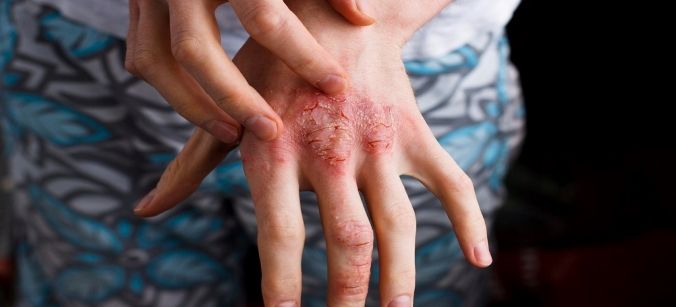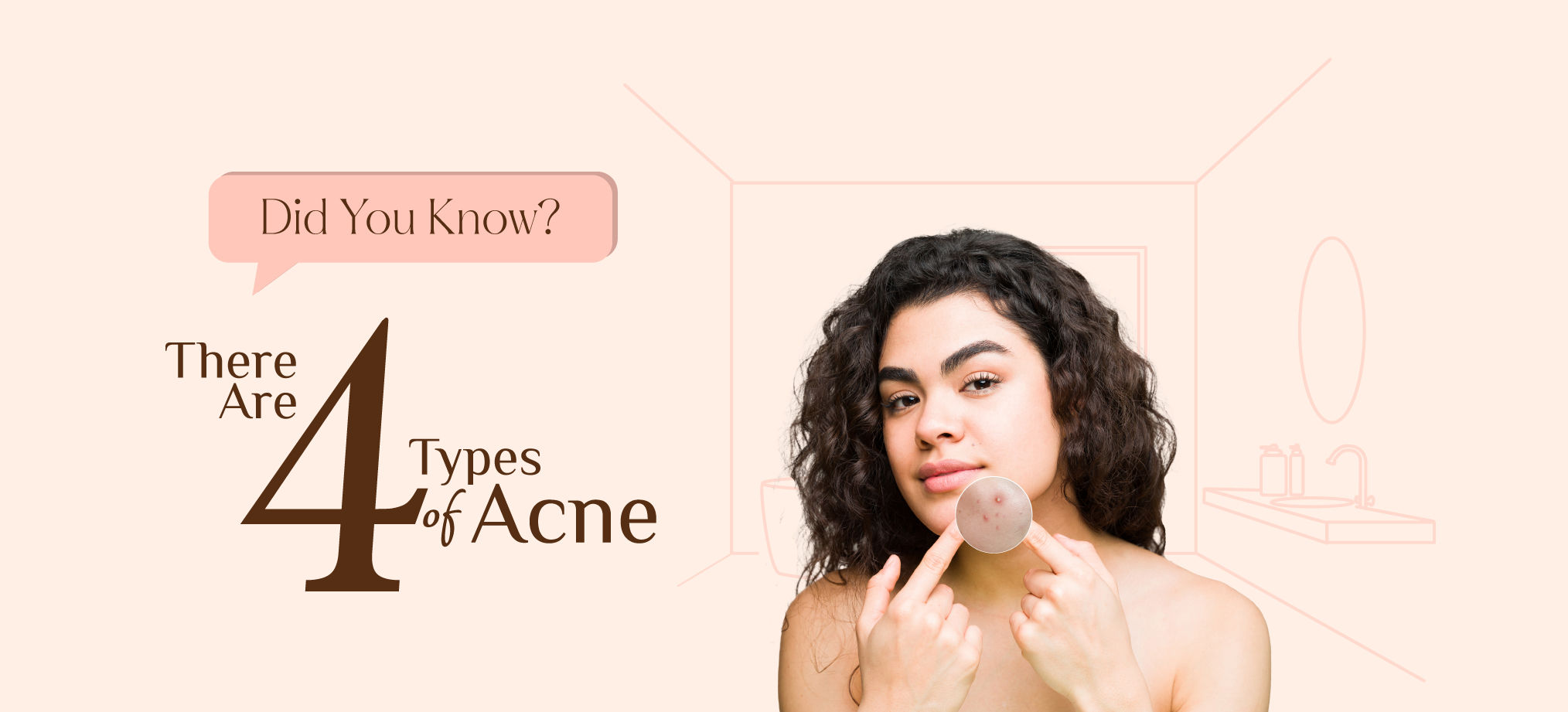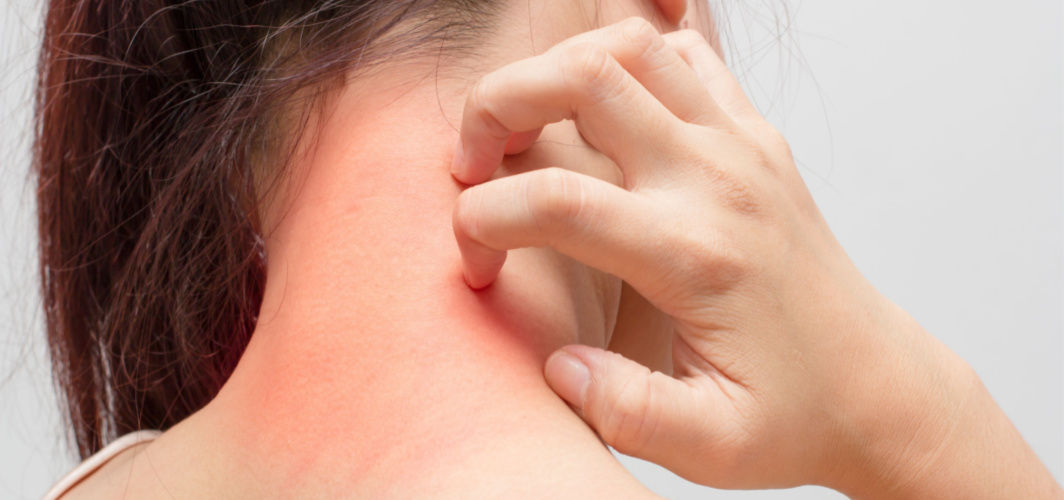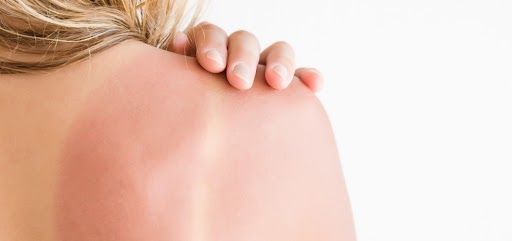Skin Care
Eczema Diet: What to Eat & What to Avoid?
6 min read
By Apollo 24|7, Published on - 09 October 2022, Updated on - 16 March 2023
Share this article
0
10 likes

The connection between eczema and diet is similar to that between asthma and the environment.
Just like pollution does not cause asthma, but its exposure may trigger severe breathlessness, coughing, and wheezing in an asthmatic patient; similarly, a bad diet may not cause eczema, but, certain food allergens present in the diet may trigger a bad flare of skin allergies such as incessant itching, inflammation, and painful oozing of the skin in a patient already suffering from eczema.
This is where this blog can help. The article is targeted to guide you on the probable effect of different food items on an eczema patient, and how understanding these bodily sensitivities can help plan a better diet to avoid any sudden skin flare-ups.
Foods to Avoid with Eczema
A person with eczema naturally has hyper body sensitivity to certain food items or environmental allergens. This is why, whenever they eat, drink or even come close to these allergens, their immune system marks it as “unsafe” and releases certain chemical compounds causing inflammation.
Some of these noted food allergens that you should consider avoiding include-
Dairy Products
Dairy products, especially those made of cow’s milk have long been reputed as a common cause of food allergies. This is because dairy is not only difficult to digest but its complex protein compound registers as ‘unsafe’ in an eczema patient’s body. As a result, it triggers an auto-immune reaction and inflammation in the skin. Two definite culprits hence best left avoided, are raw milk and cow cheese.
Peanuts and Soybean
Much like dairy, peanuts and soybean too, have a distinctive protein compound. Somehow, the body of an eczema patient sees it as a threat and causes a bad skin flare. The symptoms may appear not only while eating but even at the slightest contact or smell of leftover peanut residue.
Foods High in Sugar Content
Excessive sugar is well-known to cause a spike in your insulin levels. This in turn systematically promotes inflammation, painful acne and oozing of the skin. Therefore, no matter how tempting, items like cake, cookies, soda, smoothies, and soft drinks, are best kept at bay.
Foods High in Nickel
Nickel content in food can affect the hands and feet of people suffering from dyshidrotic eczema. Nickel is mostly found in soil and cans and hence food items such as beans, canned meats, chocolate, nuts and peas are best left avoided.
Fast Food and Preserved Food Items
Fast food and preserved food items are rich in preservatives and trans fats that exacerbate the symptoms of inflammation. Hence, limiting or avoiding the intake of items such as pizza, burgers, hot dogs, packaged tuna, chips, fries etc. can positively help avoid any sudden skin allergies.
Foods That Help Eczema Go Away
Just like certain food items are reputed to have a negative and inflammatory effect on an eczema patient, a few others are particularly known to calm skin irritations and manage bodily heat. Top 5 food items that you must include as a part of your anti-inflammatory diet include-
Fish
Fish is a natural source of omega-3, that is, the fatty acids that fight inflammation and help skin recover over a short period. Therefore, fishes like salmon, sardines, and mackerel are particularly famous for helping calm eczema.
However, be careful. Not all seafood is good. Crustaceans, molluscs, and shellfish are equally well-known for bad skin flare-ups because of their inherent complex protein compound. Choose and plan your seafood diet only after cautious consideration.
Probiotic Foods
Probiotic bacteria in food items such as yoghurt, miso soup, tempeh, kefir, or kombucha is another gold-class solution for people suffering from eczema. The good bacteria in these food helps fight the overactive immune system by building a balanced gut microbiome, healthy immune resistance, and better gut barrier, thus positively reversing the leaky- gut.
Fruits
Colourful fruits and vegetables such as apples, broccoli, cherries and spinach are notedly famous for their high inflammation-fighting flavonoids. These flavonoids are essential in skin-repairing and cell-building, and hence help calm the skin post a bad skin breakout.
Beef or Chicken Broth
Foods that are rich in skin-protecting and cell-building can help curb eczema flare-ups. Meats such as beef or chicken are especially rich in skin-repairing amino acid glycine which can provide relief to dry patches and irritation by healing the skin cells.
Potassium-High Foods
Food items such as bananas, avocados and sweet potatoes are rich in potassium, which is another inflammation-fighting component that can help reduce the symptoms of eczema. White beans and acorn squash are some such sources.
Also read: Typhoid Diet: What To Eat and Avoid in Typhoid?
Eczema Diet Plan for Adults
Planning your food according to a set eczema diet chart can help reduce inflammation and flare-ups. If you are having trouble planning your meals then you can take the help of the following diet chart which can help you immensely in reducing the symptoms of eczema.
7-Day Eczema Diet Plan for Adults
Monday
- Breakfast - A veg salad and a cup of green tea
- Lunch - Half a cup of parboiled rice and lentil soup
- Dinner - Chapati and ridge gourd curry
Tuesday
- Breakfast - A mushroom soup
- Lunch - Chapatis and bitter gourd curry
- Dinner - Chapatis and a mixed veg curry
Wednesday
- Breakfast - Oatmeal with strawberries and raisins
- Lunch - Parboiled rice with fish curry
- Dinner - Chicken stew and salad
Thursday
- Breakfast - Boiled corns along with a cup of fresh green tea
- Lunch - Parboiled rice with rajma
- Dinner - Chapatis with baked roots
Friday
- Breakfast - A veg salad with a guava
- Lunch - Chapatis with a potato curry
- Dinner - Spinach curry with chapatis
Saturday
- Breakfast - Spring onions and mushroom soup
- Lunch - Parboiled rice with red spinach and lentil soup
- Dinner - Chapati with baked pumpkin
Sunday
- Breakfast - A cup of sprouts and an orange
- Lunch - 3 Chapatis and a cup of rajma
- Dinner - Chapatis with half a cup of bottle gourd curry
If your condition is still severe even after following proper eczema diet and care, you should consult a dermatologist. Dermatologist can diagnose and recommend safest eczema treatment after evaluating the condition with the help of advanced diagnostic tests.
Frequently Asked Questions About Eczema
1. Is eczema a fungal infection?
No. While eczema may appear similar to a fungal infection, it is quite different. Eczema is a chronic condition while fungal infections are neither chronic nor genetic.
2. What happens if eczema is left untreated?
Infected eczema can lead to serious complications. If left untreated, a serious staph infection may cause sepsis, a life-threatening blood infection.
3. What are the different symptoms of eczema?
The symptoms of eczema include itchiness, dry skin, rashes, blisters and skin infections.
4. How long does eczema last?
For most people, eczema is a lifelong condition with occasional flare-ups.
5. Does stress cause eczema?
Yes, stress causes a spike in the hormone cortisol leading to eczema
Medically reviewed by Dr. Dhanunjay Reddy B.
Skin Care
Leave Comment
Recommended for you

Skin Care
Acne Guide 101: Which Kind Of Acne Are You Experiencing?
Although teenagers and young adults are most prone to develop acne, it can affect individuals of any age. It's important to address this condition promptly to minimise its impact. Read to know more.

Skin Care
Worried If Your Skin Allergy Is Something Serious? Here Are Things You Should Know!
The onset of symptoms might occur immediately after being exposed to allergens. However, there are many ways through which you can prevent these allergies.

Skin Care
6 Scientifically Proven Home Remedies For Removing Skin Tan
This article provides remedies for fading an unwanted tan with exfoliation using natural ingredients. These remedies can help reduce the appearance of a tan by eliminating dead skin cells and reducing pigmentation, but it's important to use them cautiously.
Subscribe
Sign up for our free Health Library Daily Newsletter
Get doctor-approved health tips, news, and more.
Recommended for you

Skin Care
Acne Guide 101: Which Kind Of Acne Are You Experiencing?
Although teenagers and young adults are most prone to develop acne, it can affect individuals of any age. It's important to address this condition promptly to minimise its impact. Read to know more.

Skin Care
Worried If Your Skin Allergy Is Something Serious? Here Are Things You Should Know!
The onset of symptoms might occur immediately after being exposed to allergens. However, there are many ways through which you can prevent these allergies.

Skin Care
6 Scientifically Proven Home Remedies For Removing Skin Tan
This article provides remedies for fading an unwanted tan with exfoliation using natural ingredients. These remedies can help reduce the appearance of a tan by eliminating dead skin cells and reducing pigmentation, but it's important to use them cautiously.